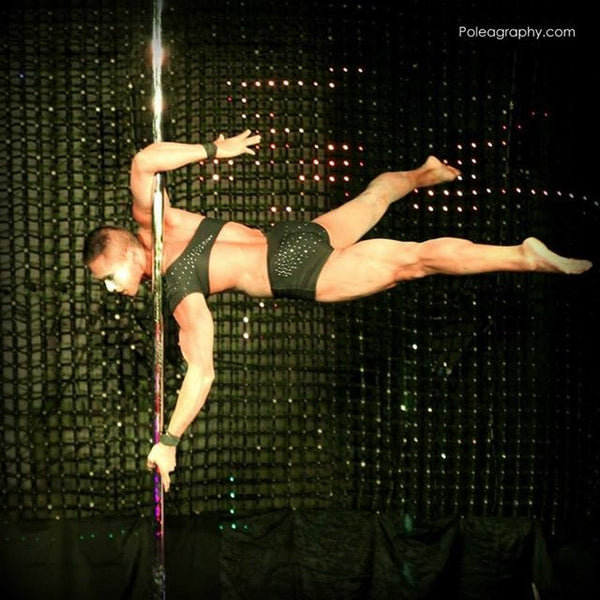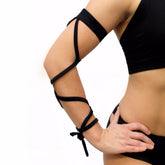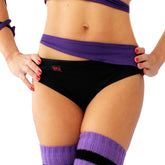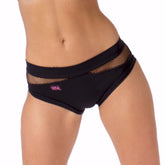How to Stay Positive During Injury - Interviews with Jason Lam and Monika Ell
Injuries are common in most amateur and professional sports. No matter what kind of training you are into, one of the worst things that could possibly happen to you is to sustain an injury, especially before a competition or event. After all the hard work, that sport becomes your life, and when you cannot train, you suddenly feel lost. Your self esteem can often take a serious hit and, you may be forced to depend on other people for help and support.
Also, with all the time to yourself and trying to recover, you begin to feel alienated. Without being able to attend classes, training sessions or hit the gym, you loose your routine. Once you are injured, you suddenly feel as if you do not know what to do with yourself, and in some cases you can feel as if you have no one.
I myself have suffered from injury and understand how difficult it is to keep motivated and stay positive. There were two athletes in particular who really kept me motivated through it all. Watching them work hard on their recovery and keep focused was really inspiration for me and many others out there. I decided to interview them and share their stories in the hope that they will help others who are suffering from injury, whether minor or severe. I have also included advise below on How to Prevent Injury.
Here are their stories:

Aerialist Jason Lam was recently in an accident while training. As a result he had to go through spinal/neck surgery to save his life. He was told that he may never be able to walk again, but despite this, Jason has inspired so many people with his amazing progress in rehab. Jason Lam is a true athlete and fighter. We asked Jason about his injury and how he manages to stay positive:
1/ Briefly describe your injury and how it happened?
I was practicing on my aerial straps when they suddenly broke. It was an unexpected freak accident that probably won't ever happen to anybody but me. I fell 14ft and landed on my neck. Instantly I was paralyzed from the neck down.
2/ What treatment did you get for your injury?
I was rushed to the hospital to have an emergency neck surgery. The accident could have been fatal had it not been for the EMT and their expert care. The doctor fused my C6/C7 together with a metal plate and 8 pins. This was good because I didn't have to wear a neck brace. Allowing me to have freedom of head movement.

3/ How long were you told you needed to work on your rehab program?
I was told that even with Rehab, I'll most likely never be able to walk again due to the spinal cord injury. With rehab I'll probably regain some recovery. I've had 3 months of rehabilitation and have made more progress than anyone expected. I'm now starting out patient rehab in Vegas and hoping to make even more progress. Only time will tell what I'll get back.
4/ How did your injury effect your training and future plans?
I've always understood that there was high risk involved in aerial arts. But living to me was being able to do the impossible. Things that ordinary people only dream of doing and was to scared to doing. When so much work was put into my training and waking up knowing I can't even tie my own shoe laces or even feeding myself. It's hard to take in. I was worried about my job. Knowing my family is going to have to help me. Losing my independence was hard. Definitely wasn't in my life plans. My future plans to start a personal relationship. Or possibly starting a family.
5/ How did this make you feel?
This was by far the hardest thing I've ever faced. Will I ever be able to train aerial again? Aerial training and going to my happy place was the one thing I always looked forward to doing. Seeing my friends smile and hugs when I walk into the gym. I felt like I lost a big part of my life all in an instant.
6/ What support did you receive?
From the moment I woke up from my surgery. I saw my parents faces. The look of relief on their faces and tears. Knowing they drove 9hrs overnight to be with me. Than seeing all my friends come in the room holding my hands telling I'll get through this made me feel stronger inside. Than through social media reaching out to show support blew my mind away. I never knew or expected I'd have so many people reach out to me. Than a donation page set up for my recovery was mind blowing. We hit 25k in 24hours. When my friend told me she was gonna set up this gofundme account, I was hoping for maybe 1k or 2k if I was lucky. Anything to help me a little bit. Than it just kept growing.
7/ How did you keep motivated during your recovery?
I had supporters from around the globe telling me to get better and they believed I'd get past this. Friends and family were praying for my speedy recovery. This fueled me to get stronger. It made me feel determined to surpass what the doctor said. I refuse to believe the rest of my life would be in a wheelchair. I must stand again someday and fly again. Somehow someway I must. Whatever it takes, I must!
8/ What did you miss the most during your recovery?
Training with my friends. To see the smile on their faces when they achieve that one move they worked so hard for. To stretch and have fun conversations about life and goals. To see amazing artists train hard to make things look effortless. Simply being inspired every day. Making the impossible, Possible.
9/ What helps you to stay positive?
Believing that what I'm going through now, will one day be a memory. Also the support from all my friends believing in me has helped me stay positive.
10/ What advise would you offer other athletes on keeping positive during injury?
To never give up. No matter the struggle and difficulty you're facing. Believe me it's not easy. Just try no matter how difficult it may seem. Do it and don't give up. It took me nearly 45 minutes to try and put on my own shorts. But a week later it only took me 5 minutes. It took me 15 minutes to pick up my phone charger up from the floor. Now I can do it less than a min. It's okay to accept help if you know you can do it yourself or can't. But just try to do it yourself. Fight to regain your independence. The more you can do, the better you'll become.
Jason is still working hard and his rehab is ongoing. Jason needs all the support he can get so please help by donating below:
https://www.gofundme.com/23mhr58
"Someday I won't be able to do half the things I do now, but I'll keep going until I can't anymore". – Jason Lam
Monika Ell is a US Pole Athlete champion, Aerialist Acrobat and Master Trainer at Lagree Fitness. During his injury he kept focused on other fitness goals and continued to wow the dance and fitness industry with his amazing inspirational training videos. He started working on conditioning exercises and perfecting his dance style. His videos were truly inspirational and we loved how he used his down time to work on other areas that he may not have had as much time to focus on before:
1/ Briefly describe your injury and how it happened?
My first incident happened when I was in Colorado back in October 2015. I was mountain biking down a mountain and my bike tire hit an edge of a rock and I went over my bike. Everything happened so fast. I remember covering my face as I flew over, my left hand/ wrist had taken most of the impact of my fall. It hurt but I shook it off and continued on with my activity. Not a smart idea. A few months had gone by and its now January 2016 I was training for The US Pole Sport Championship to qualify for Worlds in the UK. My wrist had been feeling ok at this point, but there was still some discomfort. I was running my piece and I had fallen out of a half fonji (About 10 ft) and landed once again on my left wrist. I was in a bit of a shock and my wrist was in a lot of pain. With even more discomfort, I saw my doctor right away. The final news was devastating, “MoNika, your wrist is fractured,” she said. I was so upset, all of my training, hard work, and now I have to drop out of nationals. One can imagine what I must be thinking at this time. But I kept my head up and stayed as positive as I can.
2/ What treatment did you get for your injury?
I ended up going to physical therapy for about 2 months and slowly allowed my self to heal and get stronger. It was a lot of theraband work, massage, and rest. I went about 2 times a week while also doing my own personal work.
3/ How long were you told the injury would take to heal?
I was told by my doctor it can take between 2 to 3 months for my wrist to fully recover from my injury. But anything could happen so I was not really sure how long or how fast it could be.
4/ How did your injury effect your training and future plans?
In the moment, I was so flooded with emotions. I cried, I was mad, I felt like an idiot! But as the days and weeks went on, I found that I had to be smart and really take this time to rest, heal, and focus on other projects that I had put on the back burner. This injury ended up feeling like a blessing. I got to really take a break and allow myself to heal, trained in other disciplines, focus on fitness goal, just to name a few.
5/ How did this make you feel?
In the beginning of my second injury in January 2016, I was upset and I would say depressed for a few days. But then I told myself that this is going to make me not only a stronger athlete, but also a stronger instructor and human being. I was not going to let anything bring me down and I was determined to work hard and surpass this injury.
6/ What support did you receive?
I was so surprised with the amount of support and love I got from everyone. From my family, friends, pole studios/ owners, and social media. It was such a good feeling to know that people really cared and was supporting me through out this journey of healing.
7/ How did you keep motivated during your recovery?
I kept myself motivated by going to physical therapy, training smart and surrounding myself with people that were supportive.
8/ What did you miss the most during your recovery?
Oh man, I missed ALL the training of course! I love to move and push myself physically in all of my activities. So having to step back, was really difficult for me mentally and physically. As others were preparing for comps and excelling at their goals, I felt really defeated at times. Then I would just remind myself about my healing journey. Then my mindset would change.
9/ What helped you to stay positive?
I am usually a really positive person in general. So I just continued to keep moving forward and kept my spirit up. I find that music really keeps me going. When I am down, just turn up some music and I will instantly feel better.

10/ What advise would you offer other athletes on keeping positive during injury?
My advice is- Keep moving forward and don’t let an injury hold you down or make you turn into a negative person. It takes time to heal and it just takes one second to loose everything. Surround yourself with supportive people. Have a second outlet other then what you are usually used to. In the end you choose how you want to wake up in the morning. Everyday is a new day, a new beginning. Don’t let anything that is negative put you down. Instead, look at it as a challenge and grow as a human being. We all have to fall down a handful of times. That’s how we grow and become our own individual self. I leave you with this. When you fall: Do you choose to stay on the ground and quit? Or do you pick yourself back up and fight? You are in charge of your life. We only live once, so make it the best that you can. LOVE EACH DAY
To watch more of Monika’s inspirational training videos, please check out his
Instagram page https://www.instagram.com/monika_ell/
Facebook https://www.facebook.com/monika.ell.7
How to reduce the risk of injury:
- Take time off. Plan to have at least 1-2 days off per week and at least one month off per year from training to allow the body to recover.
- Wear the right gear and safety equipment. Wear the appropriate and properly fit protective equipment. Only use equipment, fittings and crash mats that meet the correct safety standards suitable for your sport.
- Strengthen muscles. Conditioning exercises strengthens muscles. Build your strength, never jump weights or attempt moves you are not ready for.
- Increase flexibility. Stretching exercises after your training session or practice can increase flexibility. Stretching should also be incorporated into a daily fitness plan.
- Use the proper technique. This should be reinforced during each training season.
- Take breaks. Rest periods during training can reduce injuries.
- Play safe. Use a spotter if necessary and never attempt moves without the correct training.
- Stop the activity if there is pain.
- Avoid heat injury by drinking plenty of fluids before, during and after exercise.















































































































